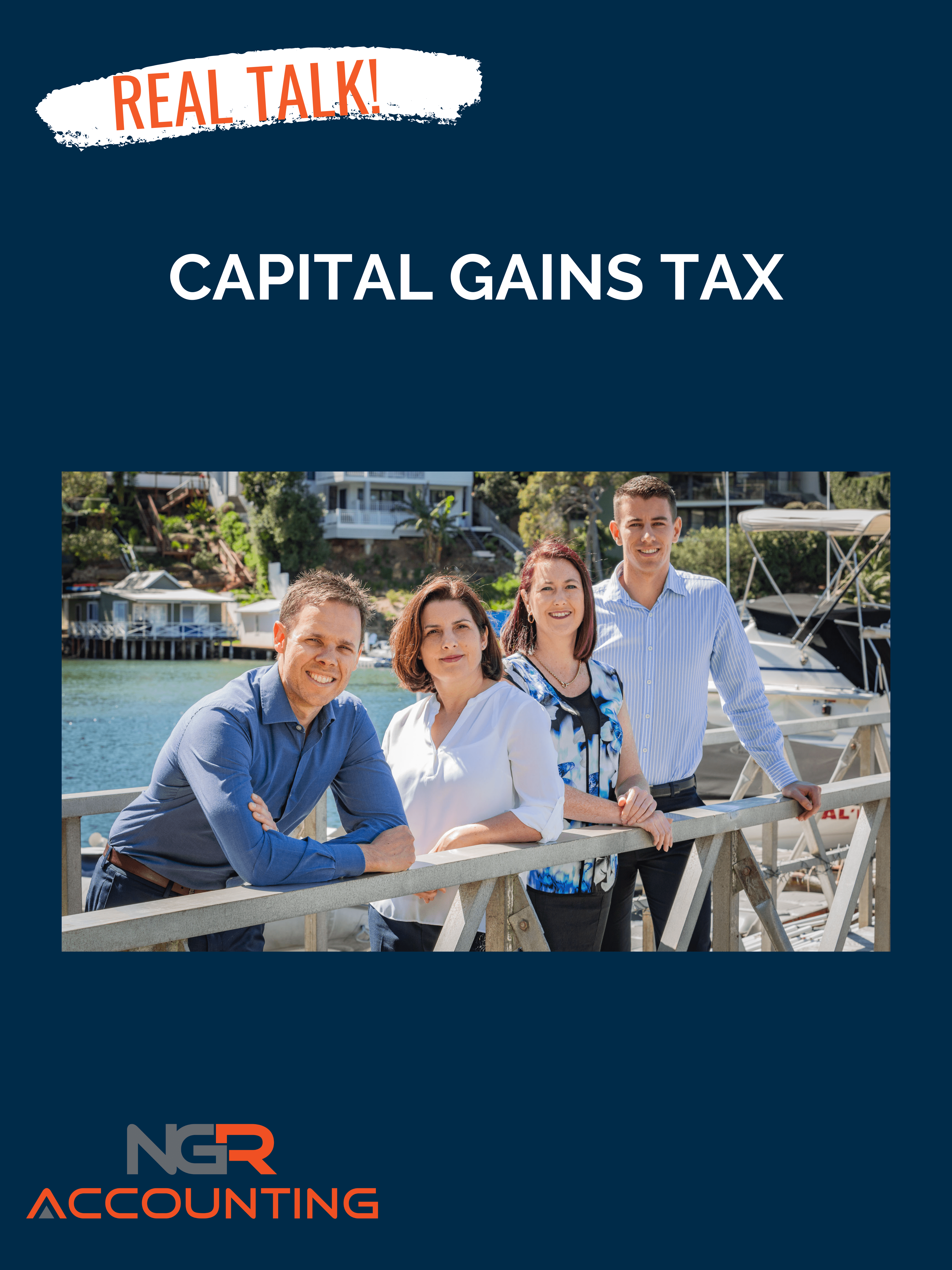Capital Gains Tax
his week Nathan lets us in on everything Capital Gains Tax, also known as CGT. Nathan shares with us some examples specifically on shares and properties, while also giving us a mini history lesson, on the basics of CGT. If Capital Gains Tax is a topic that you lack knowledge in, then this week’s topic is perfect for you.
Starting off with our mini history lesson, CGT was originally introduced on the 20th of September 1985.
Tip 1: Have a Vision Capital Gains Tax Basics
Starting off with our mini history lesson, CGT was originally introduced on the 20th of September 1985. Meaning that after this date if you had brought a property that was purely for an investment or some shares, whenever you choose to sell it, any money made on that investment would be taxed in the name of whoever was the rightful owner. However, if you are lucky enough to have owned an investment before 20th September 1985, then you do not have to pay CGT, when you go to sell.
One important thing to note, is that your family home 99% of the time will not be subjected to CGT, this only applies to investments. So, if you were starting to panic there is no need to worry.
Another important aspect of Capital Gains Tax is knowing the difference between the contract date and the settlement date. The day the contract is signed by you the seller and the buyer, that is the date that is acknowledged for CGT, not the settlement date which might occur 6-12 weeks later (which is usually the case for sale of property).
Cost base is another aspect of Capital Gains Tax that consist of two elements.
-
- First Element: is just what is cost you to buy the property. The flat-out price
- Second Element: costs incurred to buy asset, such as legal fees, real-estate buyer’s agent fees, stamp duty.
Another basic concept/terminology that is beneficial to know about Capital Gains Tax is ‘Capital Proceeds’. Once you decide to sell your investment it’s the total amount that you get at the end of the transaction. This includes all the expenses it has cost you to sell the property, such as the second elements e.g., legal fees, real-estate agents advertising and commission.
CGT Discount: 50% if you have held your investment for longer than 12 months, whatever the capital proceeds minus the cost base end up only half of it is taxable. However, the 50% discount cannot be applied to Companies & Foreign Residents.
Capital Gains Example & Calculation:
For a detailed explanation and example on Capital Gains calculations, we have worked through two examples in the video above, sale of shares and sale of a property.

